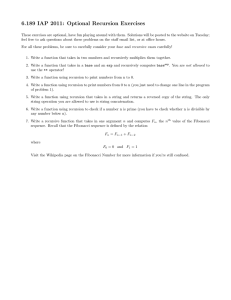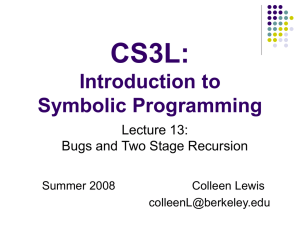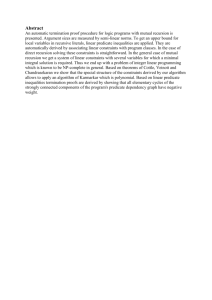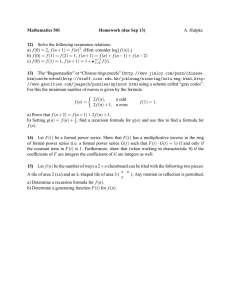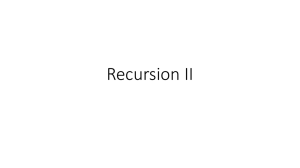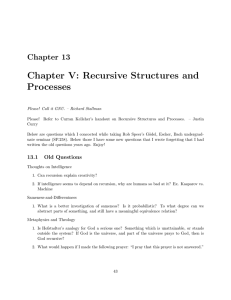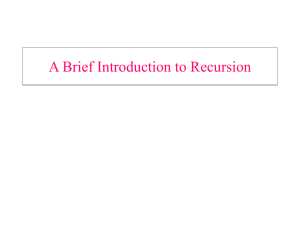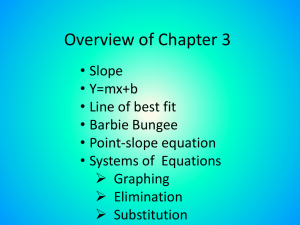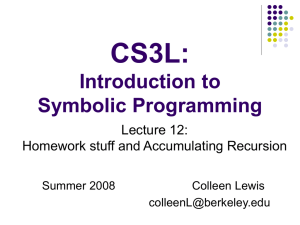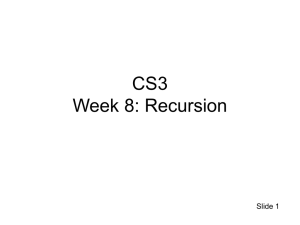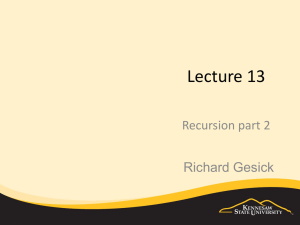Lesson 3: Recursion Formulas
advertisement
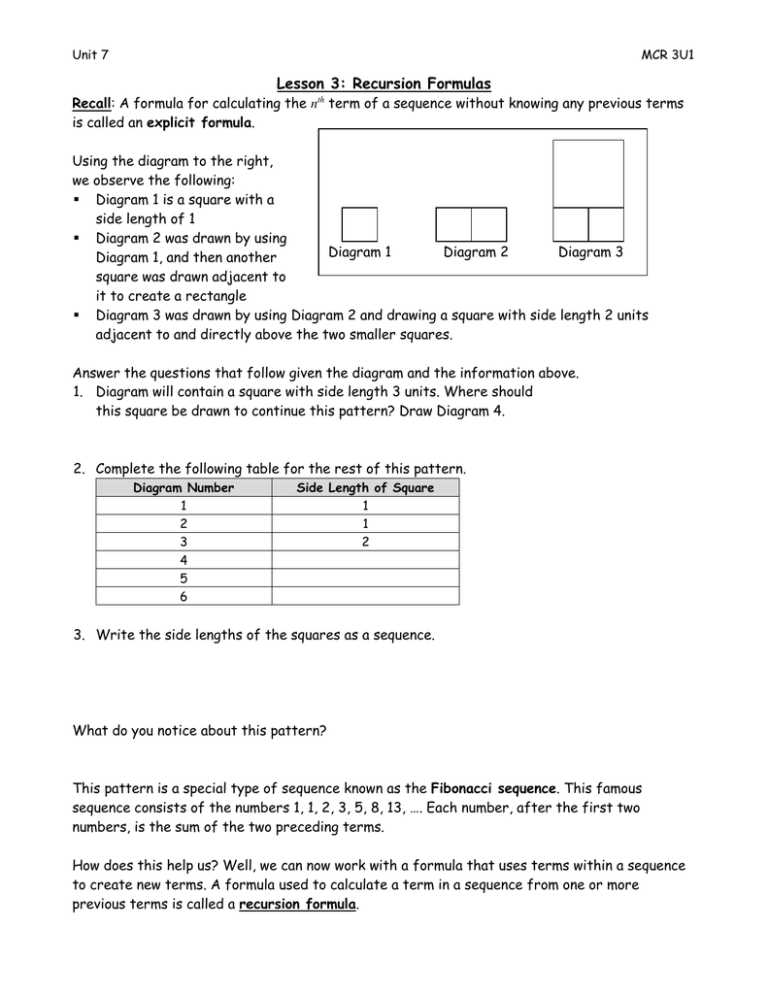
Unit 7 MCR 3U1 Lesson 3: Recursion Formulas Recall: A formula for calculating the nth term of a sequence without knowing any previous terms is called an explicit formula. Using the diagram to the right, we observe the following: Diagram 1 is a square with a side length of 1 Diagram 2 was drawn by using Diagram 1 Diagram 2 Diagram 3 Diagram 1, and then another square was drawn adjacent to it to create a rectangle Diagram 3 was drawn by using Diagram 2 and drawing a square with side length 2 units adjacent to and directly above the two smaller squares. Answer the questions that follow given the diagram and the information above. 1. Diagram will contain a square with side length 3 units. Where should this square be drawn to continue this pattern? Draw Diagram 4. 2. Complete the following table for the rest of this pattern. Diagram Number 1 2 3 4 5 6 Side Length of Square 1 1 2 3. Write the side lengths of the squares as a sequence. What do you notice about this pattern? This pattern is a special type of sequence known as the Fibonacci sequence. This famous sequence consists of the numbers 1, 1, 2, 3, 5, 8, 13, …. Each number, after the first two numbers, is the sum of the two preceding terms. How does this help us? Well, we can now work with a formula that uses terms within a sequence to create new terms. A formula used to calculate a term in a sequence from one or more previous terms is called a recursion formula. Unit 7 MCR 3U1 A recursion formula consists of at least two points. The first part(s) give the values of the first term(s) in the sequence. The last part is an equation that can be used to calculate each of the other terms from the term(s) before it. Example 1: Write the first 5 terms of the sequence determined by the recursion formula t1 11 t n t n 1 4 . Determine the explicit formula for this sequence. Example 2: Write the first 5 terms of the sequence determined by the recursion formula t1 2 t n 3t n1 . Determine the explicit formula for this sequence.
